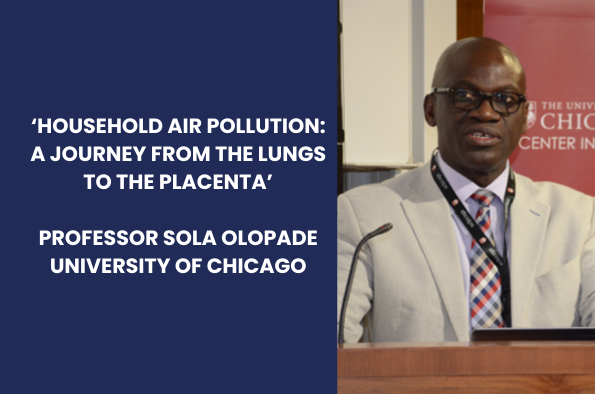
Household Air Pollution: A journey from the lungs to the placenta and early child development
- Mandy Ellison
- Admission: Free, registration required.
- Event website
- Book now
Add this event to my calendar
Click on "Create a calendar file" and your browser will download a .ics file for this event.
Microsoft Outlook: Download the file, double-click it to open it in Outlook, then click on "Save & Close" to save it to your calendar. If that doesn't work go into Outlook, click on the File tab, then on Open & Export, then Open Calendar. Select your .ics file then click on "Save & Close".
Google Calendar: download the file, then go into your calendar. On the left where it says "Other calendars" click on the arrow icon and then click on Import calendar. Click on Browse and select the .ics file, then click on Import.
Apple Calendar: The file may open automatically with an option to save it to your calendar. If not, download the file, then you can either drag it to Calendar or import the file by going to File >Import > Import and choosing the .ics file.
CLEAN-Air(Africa) is delighted to welcome Dr Sola Olopade from the University of Chicago to present findings from his pioneering research in Nigeria that has helped recognise household air pollution as the biggest environmental risk factor for global disease burden. His research has demonstrated the international public health priority transition to clean cooking.
Dr. Sola Olopade is Professor of Medicine and Dean for Academic Affairs in the Biological Sciences Division and the Pritzker School of Medicine at the University of Chicago. Dr. Olopade was among the first environmental scientists to recognize the multiple potential health risks of exposure to household air pollution (HAP), a previously under-recognised global health issue. His research in Nigeria was the first to explore the potential health benefits of transitioning pregnant women from cooking with polluting to clean fuels.
He is now leading NIH-funded research studying how HAP exposure affects child development and how, using implementation science, the adoption of clean cooking technologies can lead to multiple positive health impacts. Dr. Olopade is devoted to educating and training young people, particularly focusing on helping trainees develop strong research skills and a firm grasp of the ethical principles that ground sound medical and research practice.
